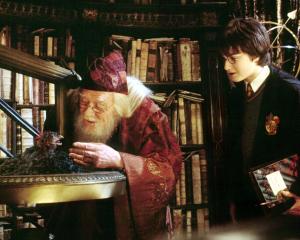

Lately, I’ve been really enjoying reading historical novels, particularly those set in the Antipodes. Aotearoa has a rich history and culture, and although I have spent many hours poring over primary texts in historical archives as part of my university studies, I secretly prefer to immerse myself in another time and place via a well-written novel. To this end, I have been working my way through various literary offerings from Eleanor Catton, Keri Hulme, Witi Ihimaera and Alan Duff. The Seasonwife is a worthy contribution to this genre.
Set in the "Middle Island" (present-day South Island) of New Zealand in 1832, The Seasonwife is a complex, multilayered tale of darkness, secrets, violence and cultural resilience. England weaves together the fate of four key figures: Bridie Murphy, the orphaned daughter of a transported convict Irish woman; Manaia O Piripiri, a passionate young Māori woman; Quentin Cuthbert, a milquetoast missionary with a shady past; and the dastardly captain Robbie Fitch.
The story opens in Sydney, where poor Bridie, bereft by the death of her mother, is raped and abducted by Fitch, before being shoved on a ship heading to New Zealand. Whaling, ostensibly, is the reason for this voyage, but it soon becomes evident that Fitch has more nefarious motivations — namely, the butchering of local Māori in order to collect their tattooed heads (mokomokai) as morbid trophies for bored gentry back in England.
While Fitch and his men are initially welcomed by the local Māori, animosity soon begins to fester as this Dickensian monster slaughters and tramples his way through the whenua.
Poor Manaia is sent by the rangatira to spy on the tauiwi and report back. She is also abused by Fitch, and soon she and Bridie form a delicate alliance. Amidst the maelstrom of racial tension, unravelling secrets, and the arrival of waka taua from the north, Cuthbert is finally forced to decide where he stands.
A good historical novel is not only entertaining but informative. It plunges the reader into a bygone era, and educates her by degrees, gracefully revealing a plethora of information through well-crafted prose, a compelling narrative, and richly drawn settings. England does this with aplomb.
The Seasonwife is a lyrical and poetic delight, skilfully blending languages like te reo Māori, Irish Gaelic, whalers’ jargon, and Roma cant. (This linguistic tapestry — the interplay of Celtic and sea-faring slang alongside the warm familiarity of Māori — may be navigated with the help of a comprehensive glossary). The resulting prose is musical, even playful, but never cacophonous.
In the opening chapters I worried that England might rely too heavily on certain stereotypes and cliches, such as the villainous antagonist (Fitch), or the damsel in distress (Bridie). My fears were soon assuaged however; England’s characters and their interactions are far from one-dimensional. Their motivations, actions, and inner thoughts are at times confounding, frustrating, complex, and above all, deeply human. The multiplicity of perspectives provided by the different narrative voices also ensures a more comprehensive and nuanced understanding of the historical context. England is an award-winning human rights journalist; her experience in listening to and platforming a variety of voices and perspectives in her former career has clearly translated well here. And unlike other historical novels based in New Zealand, England’s Māori characters are more than stage settings or silent background characters. Through the voice of Manaia O Piripiri, we are privy to the hopes and horrors of colonisation.
In The Seasonwife, the past takes on a life of its own, with the various characters’ ancestors stretching through time to mould the destinies of their descendants. Bridie draws strength from her Irish roots and the familiarity of tradition, while Manaia is ever-wary of "the whispering of her tipuna in her ears". These ancestral echoes reverberate through the pages of the novel and serve as a poignant reminder that our history and those who have gone before us are a living, breathing presence in our lives.
The Seasonwife is not perfect, however. At times I found myself overwhelmed by the sheer denseness of the prose and the multiplicity of descriptions. I had to pause and reread paragraphs in order to parse out the action from the adjectives. Then again, such a novel might best be read in small increments, so that one might savour the richness of the text.
In a world where history is written by the victors, and the darker chapters of our past are often concealed, The Seasonwife emerges as a poignant reminder of the harsh realities that shaped New Zealand’s colonial times. The resilience of the human spirit— particularly that of women — is contrasted not only against the greed and corruption of those with more power and resources, but also against the ineffectuality and unintended complicity of those who are willing to stand by and watch. Conflict is inevitable, but there is beauty too. The Seasonwife is a story to savour.
- Jean Balchin, a former English student at the University of Otago, is studying at Oxford University after being awarded a Rhodes Scholarship.












